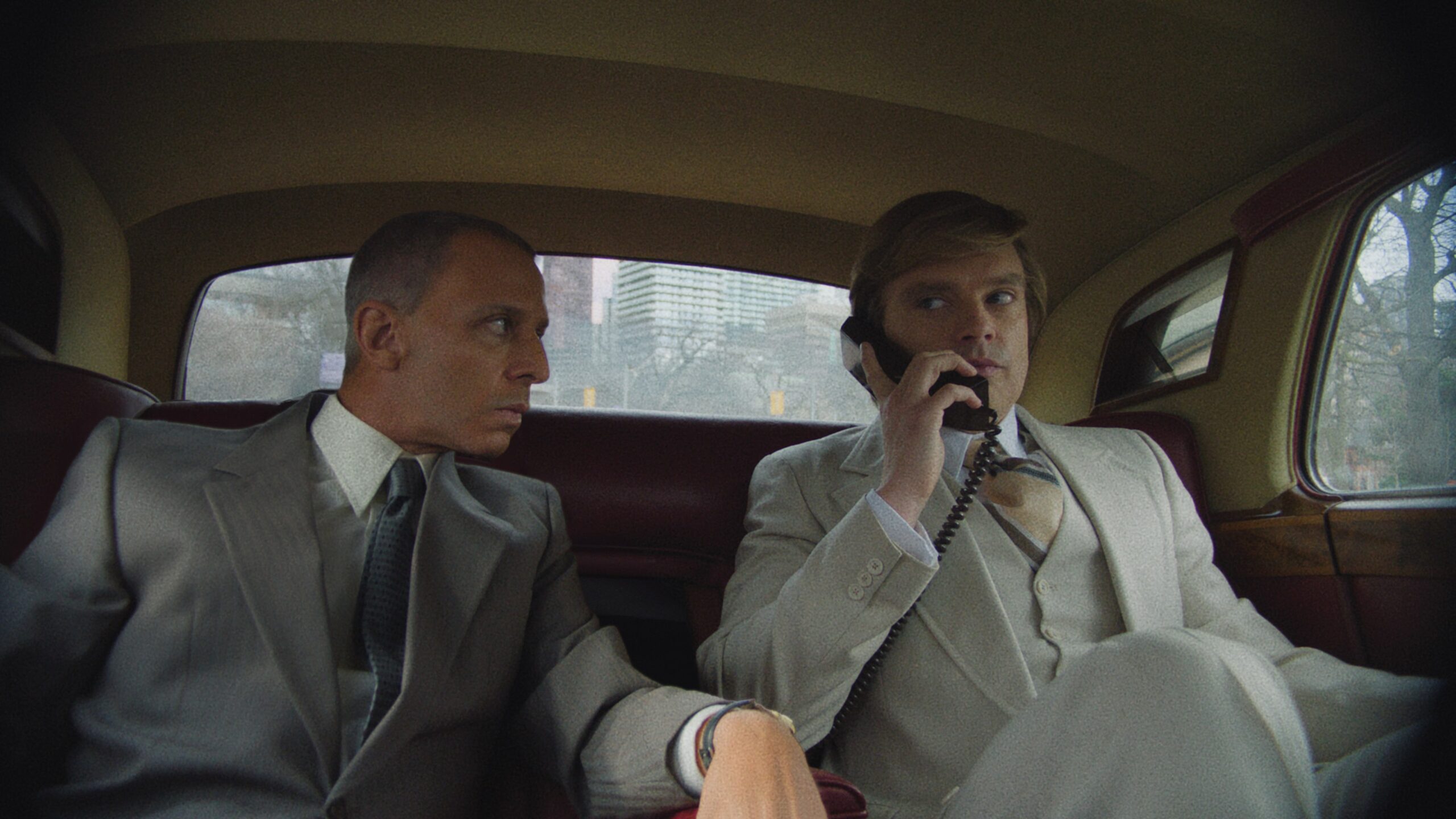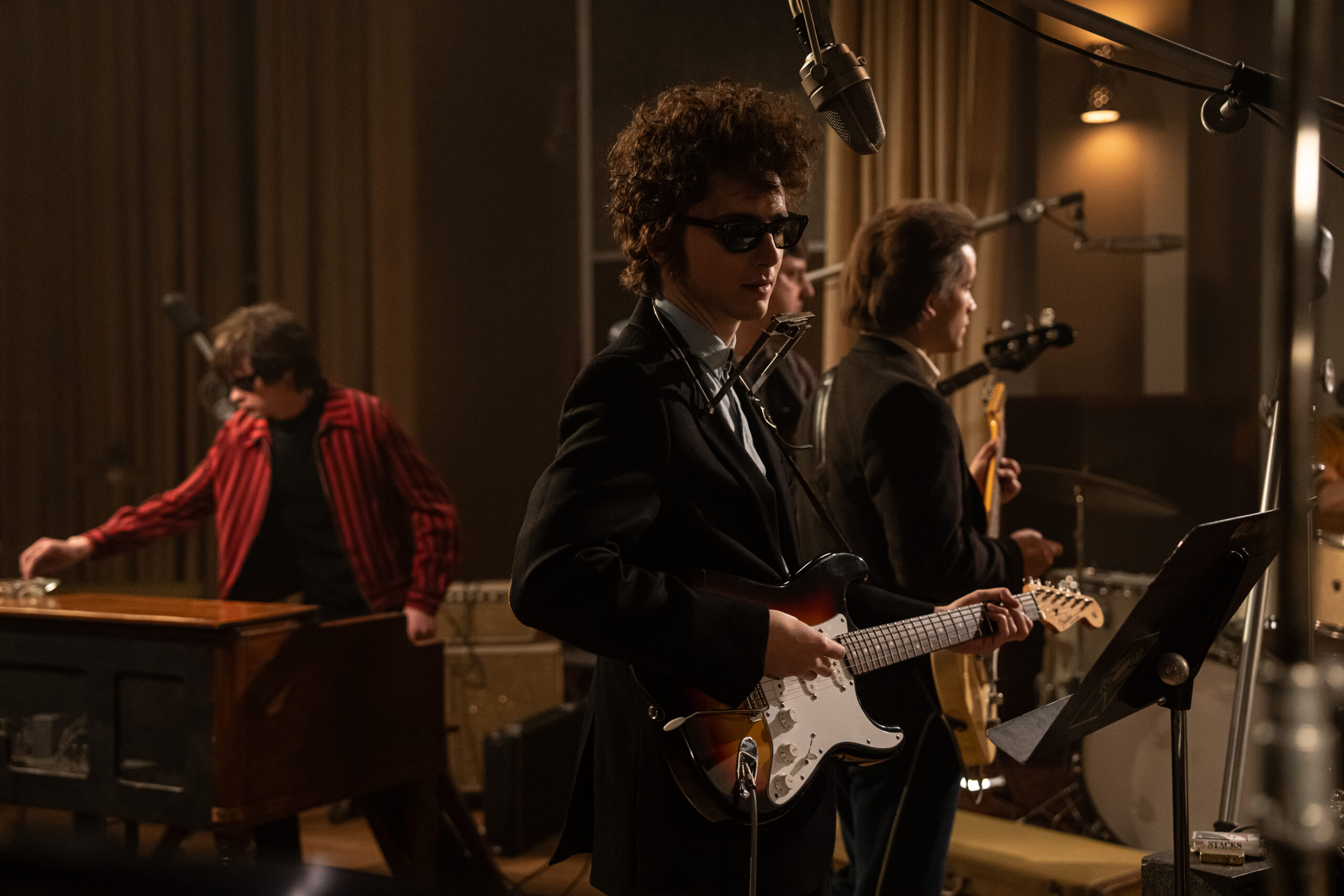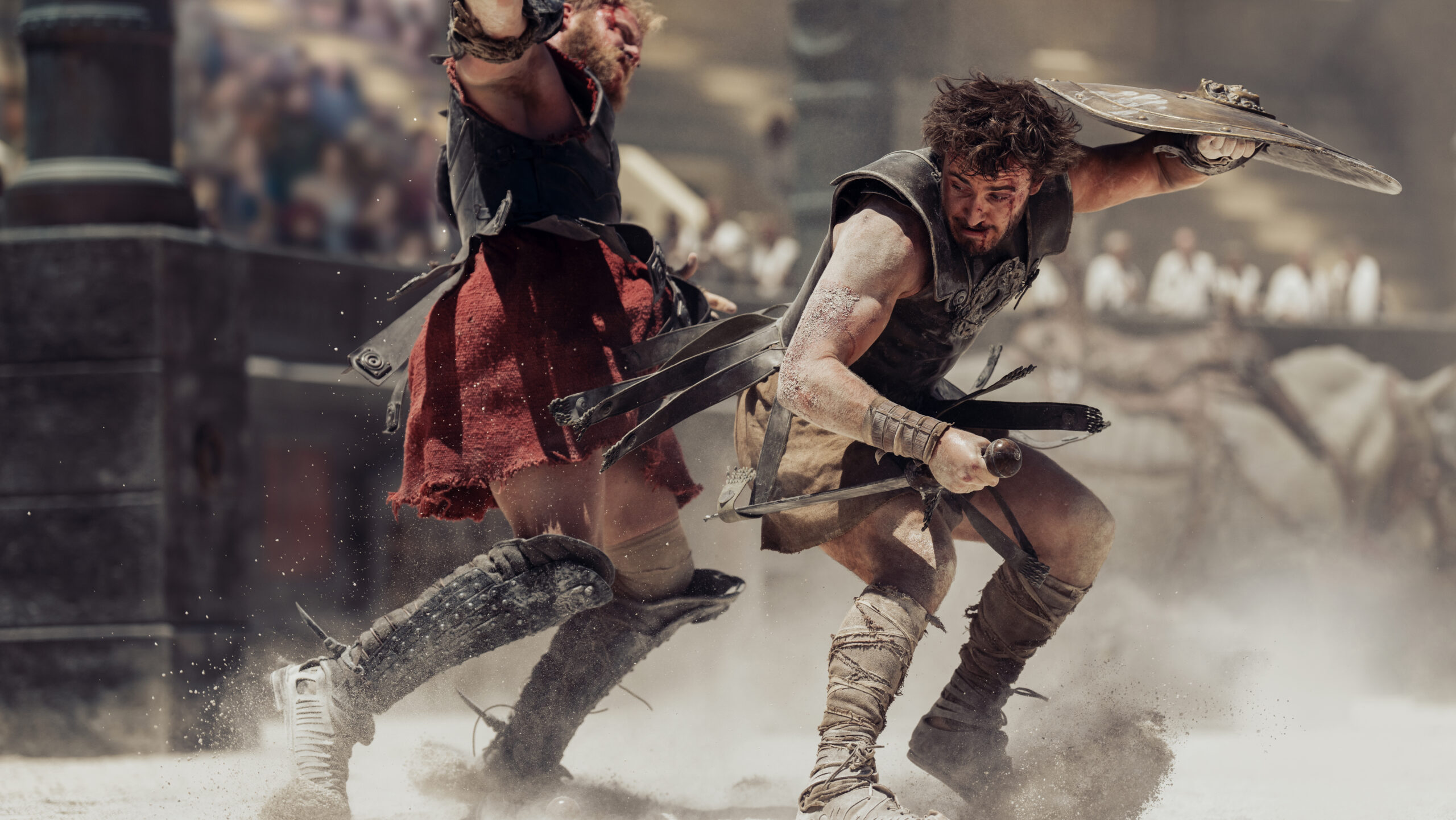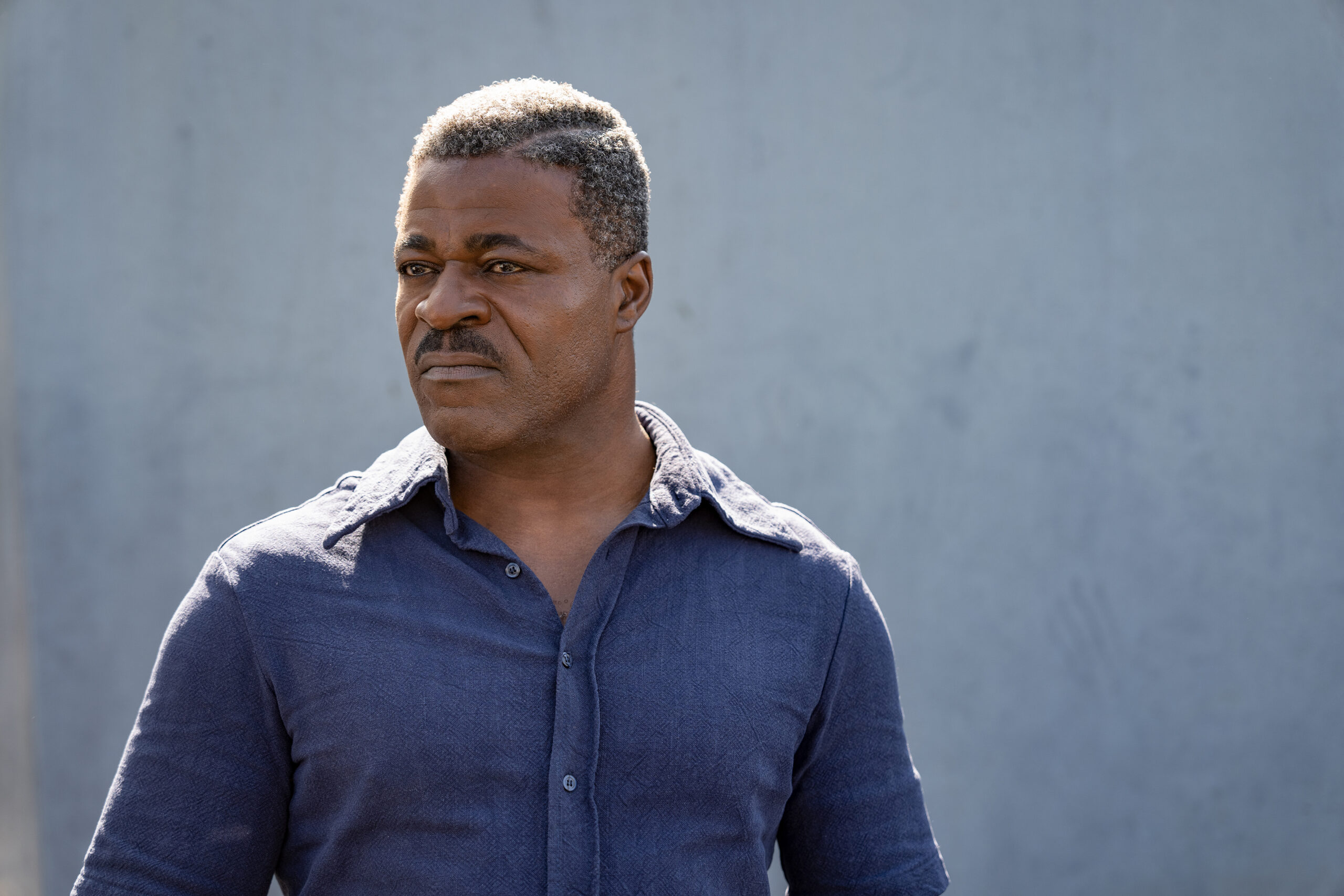The casting director of ‘Fargo’, ‘Reacher’ and ‘IT’ tells us about casting the BAFTA-nominated film ‘The Apprentice’ and how she discovers new talent.
Canadian casting director Stephanie Gorin has an extensive number of projects to her name. You’ll find productions like Reacher, IT, Miss Saigon, &Juliet and Saw amongst the 200+ projects she’s cast across television, film, theatre and commercials
At this year’s BAFTAs, Stephanie is nominated in the Casting category alongside Carmen Cuba for The Apprentice. Her work on the film has also been recognised by the Artios Awards, with Stephanie receiving a nomination for her location casting for Fargo. The Apprentice leads, Sebastian Stan and Jeremy Strong, have both been nominated for Oscars for their performances as ‘Donald Trump’ and ‘Roy Cohn’.
We caught up with Stephanie to talk about her casting Irish performers and Spotlight members Eoin Duffy and Valerie O’Connor in The Apprentice, what she looks for in auditions and her thoughts on giving new talent a break.
Hi, Stephanie! Congratulations on your BAFTA and Artios Awards nominations for The Apprentice and Fargo. How does it feel?
It’s always really exciting. I’m a small-town girl and I didn’t even know what a casting director was when I was growing up. Being honoured with Emmy and Artios nominations, and now the BAFTA, is truly humbling.
How did you first come to be involved in casting The Apprentice?
They were having interviews for the movie. One of the producers I had worked with before said, “Hey, I’ve met the director and I think you might be a good fit with him. Would you be interested in coming in to interview for this?”
So, I read the script and I loved it. I love anything that’s character-driven. It also looked a bit ambitious as the budget wasn’t big and there were many characters. I went in and met Ali [Abbasi] and we had a very nice chat.
I’m not someone to come out with a lot of star names. If you want the big-name stars, I always recommend an American casting director. I love casting Canadians and this time we had actors from Ireland as well. It’s wonderful giving them a shot at parts they might not normally have a chance to play.
Often, in Canada, a feature will come with stars that a hardworking American casting director, like Carmen Cuba, would have spent years searching for. She had already attached Sebastian [Stan] and Maria [Bakalova] and they were working very hard to entice Jeremy [Strong].
Ali was really interested in the kinds of casting I was doing at the time. I had just cast the first Inuit show ever produced in Canada, and that was a massive search. We saw over a thousand actors, just like we did for The Apprentice. Ali is very passionate about actors and truly loves the creative process.
It was a bit daunting to have an iconic character, like ‘Andy Warhol’, who only had a few lines, and had to be a local Toronto actor. It was so important to Ali, and myself, to find someone who could encompass the role in look and feel. I knew it was going to be very, very tricky. When I left, I said, “Okay, I loved meeting Ali, but I’m also scared of this project,” because many of the roles were like this. Ali was very particular, even with the roles that didn’t have any lines. Every moment was important to him.
Did you use Spotlight or Casting Networks during your search?
I was helped out by the producers in Ireland because I was overseeing close to 100 parts here. The producers sent me a lot of choices and from that I whittled down to the ones who seemed right for the roles. We provided links to the characters to help them embody these parts and to see what these real people were like.
‘Rona Barrett’ and ‘Tony Schwartz’ both ended up being successfully cast out of Ireland. After watching all the tapes from the Spotlight links that were sent to me, I forwarded my recommendations to Ali.
Could you tell us about the audition process for The Apprentice?
This is just after the time of Covid, so some of it was over Zoom and the rest was all self-tape. I picked as many people as possible who I felt could be right. If they didn’t end up getting the role, they could possibly slide into another. For the Toronto actors, we also supplied references to the real people to help with their auditions.
We were extremely fortunate to cast three amazing Canadian actors in the Trump family roles. Martin Donovan knocked it out of the park as ‘Fred Sr.’, and Charlie Carrick as ‘Freddy’ and Catherine McNally as ‘Mary Anne’ were equally riveting in their roles.
It was a heck of a lot of legwork to be honest with you. I keep thinking about Andy Warhol or ‘Fat Tony’ and other actual people in history – we didn’t want caricatures. They had to feel like real, living, breathing people. It was important to give the actors a chance who seemed to have the look, spirit and talent. If they didn’t get it the first time, we would say, “Okay, you’re on the right track, but this is what we’re looking for.”
I watched over 1,300 tapes because you never know what you’re going to find. I would send emails to the agents to say, “This is exactly what we’re looking for and this is what the feel of the piece is.” Anything to help them.
If the actor does well, you are also doing your job well. You want them to be successful. It’s great if we have more than one choice. Sometimes we would only have one actor who could truly embody the role, and then you have to hope your director is going to like them and agree with your vision.
Casting director Carmen Cuba has also been nominated alongside you for casting the film. How does that working relationship play out when more than one casting director is involved in a project?
On this particular project, I never spoke to Carmen. We were not connected at all. Carmen had done her job. She had found the three stars who helped green light the project. I’m sure she had to come up with, and research, endless lists. I do not envy that job. Then I stepped in and started my process.
Because of the BAFTA nomination, we have had a lot of interaction, mostly coming up with the submission letter explaining what each of us did. So, we had more interaction over applying for the BAFTAs than the actual casting. I’m looking forward to meeting her in London for this celebration.
Generally, you work fairly hand in hand with US casting directors, because if the show is shooting in Canada, the union here wants to know that we’ve made every effort to get as many Canadians in as possible. We look for every role, but quite often the American casting director is brought on before us for the leads, then we collaborate throughout.
What do you look for when you discover new talent?
Well, great acting for one, that they’re invested in the material. Every so often, you see someone who is special. There are many actors who are skilled, and then there are some where there’s something about them that’s unusual and you think, “Wow, this person’s going to be a star.” It’s quite extraordinary when that happens.
The first time Rachel McAdams came into the room, she was in university. She was beautiful, charming, and a fantastic actor. I thought she was incredible and I sent her along to the director. The director said, “Where the heck did she come from?”
It was the same when I first saw Tatiana Maslany. I brought her in for a British film called The Nativity and the director kindly allowed me to introduce one Canadian for a lead and she got the part. Tatiana was extraordinary even in her teens.
It’s lovely to watch actors grow and they now have more opportunities as so many great projects have been coming to Canada.
How did you first get started as a casting director?
To be honest, when I was growing up, I didn’t really know what a casting director did. I started to learn after I moved to England, hoping to get work in the theatre. I was lucky enough to work in Ireland as an actor and with the Welsh Opera as an ASM (Assistant Stage Manager) and did one bit part on a British TV series.
I returned to Canada to study music theatre at Sheridan College. After graduating, one of my fellow students was working with the company now known as Mirvish Productions – a well-known theatre production company. He was kind enough to recommend me for a variety of jobs there.
My experience with them included assisting the producer during casting sessions, reading with the actors, reception work, understudying two big shows – including one from England where I had to step into a role overnight, ending with the chance to help cast Les Misérables, assisting a well-established casting director. I was very fortunate to be mentored by many experienced casting directors over the years.
My assistant casting job also included arranging the casting tours cross-country for various shows over the years. I went out on my own after I had my first son, Devon, as Vinnie Liff called and asked if I would like to be their associate for Miss Saigon. I was thrilled being the Canadian casting person. That was the beginning of having my own casting company.
For film casting, Deirdre Bowen, who’s quite well-known in Toronto, was kind enough to suggest me for a project she was on which required violin players and ballet dancers, who could act. This was my big break into TV/film.
I think casting encompasses everything – my love for acting, directing the actors, helping them as much as I can in auditions, reading great scripts, hearing amazing musical theatre talent and the occasional travel. When we go cross-country and do open calls, often making discoveries, that’s the exhausting yet fun part of the job. We just did a couple of open calls for &Juliet, working 12-to-16-hour days, seeing over 1200 performers in total.

Casting director Stephanie Gorin
What’s your process for casting a new project?
While reading the piece, I like to do a breakdown as it helps give me a feel for the characters. Then we pull the sides the actors will read, tweak the breakdown again, and then send it to producers first for approval. Then the studio and/or networks also have to approve. Sometimes there’s only so much we’re allowed to give away, and that’s a hard thing because certain projects may be top secret and we have to hide a lot of the storyline and create fake names.
Then we release the breakdown, pick the submitted actors, and watch the many self-tapes. The best are then shown to the director and producers, and if they haven’t found what they are looking for, we try to find other options. That’s my process. The rest of it is getting them booked, all the clerical work including cast lists, offers and deal memos.
One of your most recent projects is IT: Welcome to Derry. Aside from Bill Skarsgård returning as ‘Pennywise’, the cast is mostly newcomers. How did you go about finding these newcomers?
[The project] is very secretive. It is set back in time. I can’t tell you anything else. I did work on the IT films as well with Andy [Muschietti] and Barbara [Muschietti]. Andy is a visionary, of course. He’s just such an interesting director to work with, rather like Ali was. I always enjoy seeing which actor will move the needle for him.
It really is the same process. The nice thing about Andy is that he’s willing to try those who aren’t big names. A lot of Canadians I’m talking about haven’t had their big break, and I think this show will actually do it for some of them. They’ve landed really nice parts in this series and I predict it will be hugely successful.
You’ve cast quite a few horror films, like Thanksgiving and the Saw films. Are you particularly drawn to horror?
I remember some of those first [Saw] auditions, and we were talking about an actor really investing in the material, really being connected to it. Imagine watching an actor as they re-enact, what it’s like having to cut off their leg in order to survive and the tears are streaming down their face. I’d be just blubbering beside the director during auditions like that. We’d usually have the director in the room as we didn’t want them doing it more than once. I’d say, “Please don’t make him do it again.”
[Horror] can also be fun, too. I did Thanksgiving with Eli Roth, and that had a lot of comedy. I mean, there are many people dying, but it was very funny as well. And so, I do enjoy that. There weren’t a lot of laughs in the Saw films. They were more drama meets horror as opposed to comedy meets horror.
But luckily, I get to do a variety of things. A lot of action shows with Skydance, and Nick Santora too, like FUBAR, Reacher and the new Neagley series.
What has been your favourite project to work on and why?
That’s a very hard one to answer. If I could only pick one, I would probably say Fargo. Obviously, the writing is fantastic and I love the textured, interesting characters.
I get great joy out of so many of [my projects]. I think you do fall in love with each one that you do. They’re all so different and unique. Obviously, there are ones that rise to the top more than others. The Apprentice has been an amazing ride. A film that was quite tough to cast but very rewarding, and we knew it would be special, so I’m very lucky to be a part of it
What are your audition dos and don’ts for performers?
It’s funny – [I’ve got] a good friend of mine who’s a comedy writer. Her name’s Naomi Snieckus. She and I created a comedy web series called The Casting Room based on things that had actually happened to me during auditions in the room. This was before web series were really a thing, and I said, “It would be so much fun to make a web series – short three-to-five-minute clips on things that actors do wrong but done with humour and love, and we have these comedy performers come in to audition and do everything wrong.”
For example, we had Colin Mochrie come to audition, bringing a headshot that was clearly from 30 years ago (when he had hair) and Scott Thompson coming in complaining he was late, and unprepared, insisting it was all because of his agent. Another time, an actor came in quite sick but didn’t tell us until after he shook our hands. The director got so sick [that] he had to work from home for a week. Many actors used to come in completely costumed.
I would say not being prepared is probably the biggest thing under the ‘don’ts’. Being on time is important. If you’re not well or you can’t come in, it’s better not to come. Nowadays, you can luckily tape. Know your lines, connect with the character, be yourself and also be someone open a director would like to work with.
Finally, what would be your dream project to work on?
A big feature with someone like Christopher Nolan, who has great taste in actors and always makes fantastic films. I loved Oppenheimer.
A dream job is a great project with a great script and a wonderful collaborative director. There are so many directors out there who are terrific and it’s been a joy working with them. I have an English [script] my heart is invested in, and I’m hoping that it will end up coming to Canada. I’m excited about that, but I can’t really say any more.
Thank you, Stephanie, for taking the time to talk to us!
‘The Apprentice’ is available to watch on Sky Store Premiere and NOW.



















